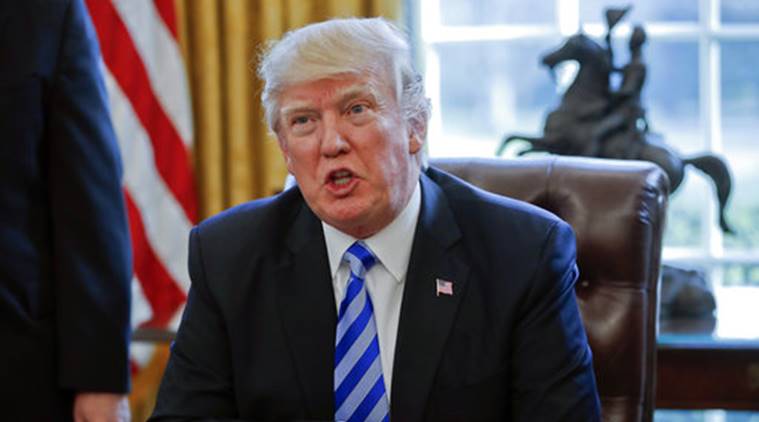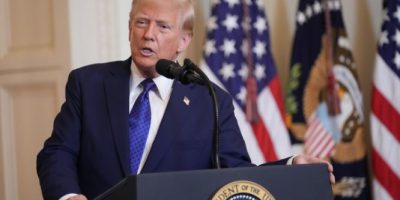Trump injects US into volatile crises by siding against ally Qatar

WASHINGTON, JUN 07 (DNA) – President Donald Trump injected the United States into a volatile crisis among America’s Mideast allies, siding Tuesday with Saudi Arabia and other countries against Qatar in a dispute that threatens to disrupt efforts to defeat the militant Islamic State (IS) group and counter Iran.
In a series of early-morning tweets, Trump appeared to endorse the accusation that the small, gas-rich kingdom funds terrorist groups, a serious allegation against a strategic US partner that hosts a base with some 10,000 American troops.
He also sought to cast the anti-Qatar action led by the Saudis and the United Arab Emirates as the result of his trip last month to Riyadh, where he pressed leaders from dozens of Arab and Muslim governments, including Qatar’s emir, to combat extremism.
Trump said he’d told the kings, presidents and prime ministers that funding “Radical Ideology” can’t be tolerated, and “Leaders pointed to Qatar – look!”
“They said they would take a hard line on funding… extremism, and all reference was pointing to Qatar. Perhaps this will be the beginning of the end to the horror of terrorism!” Trump said on Twitter, claiming his visit to Saudi Arabia was “already paying off.”
He appeared to take a more measured tone during a call with Saudi Arabia’s King Salman.
Trump told Salman that a united Gulf Cooperation Council is “critical to defeating terrorism and promoting regional stability,” according to a White House readout of the conversation. The council includes Qatar, Saudi Arabia, the United Arab Emirates, Bahrain, Oman and Kuwait.
The president’s sharp critique of Qatar pulled the US directly into a conflict that American diplomats had wanted the bickering parties to resolve among themselves.
The US wasn’t planning a major mediation role, a State Department official said, pointing to offers from Turkey and Kuwait to intervene in what is emerging as the worst diplomatic crisis in the Persian Gulf in decades.
The fracas pits Qatar a country smaller than Connecticut and the world’s biggest producer of liquefied natural gas against Saudi Arabia, the UAE, Egypt and Bahrain.
Those countries on Monday severed diplomatic ties with Qatar, leading to suspended flights and regional ports closed to Qatari ships as anxious residents started stockpiling food.
Qatar’s neighbours have long accused the country of tolerating or even encouraging support for extremist groups, including Al-Qaeda’s Syria branch all of which Qatar denies. But its independent foreign policy has led to various tensions with its neighbours.
The region’s Sunni states bristle at Qatar’s less hostile position toward Shiite Iran and object to its backing groups such as the Muslim Brotherhood, whose ideology challenges the system of hereditary rule in Saudi Arabia, the UAE and elsewhere.
For Trump, the rift has emerged as a key test of his goal to unite the region around destroying IS and other extremist groups, and containing Iranian influence. While he has even held out hopes that a communal effort could pave the way for Israeli-Arab rapprochement, the Qatar crisis serves as a reminder of the region’s many fault lines that challenge US diplomacy.
While Trump, too, shares the Saudi and UAE goals of weakening hardline movements and stemming Iran’s influence, American officials hadn’t publicly singled out Qatar as a problem.=DNA
==============
Related News

The Power to Give, the Strength to Gain!
Mani Kohli: A symbol of excellence, perseverance & generosity Erum Masood On March 8 eachRead More

President Trump threatens to cut off all trade with Spain
Experts note that implementing a full trade cutoff with an EU member state would faceRead More


Comments are Closed